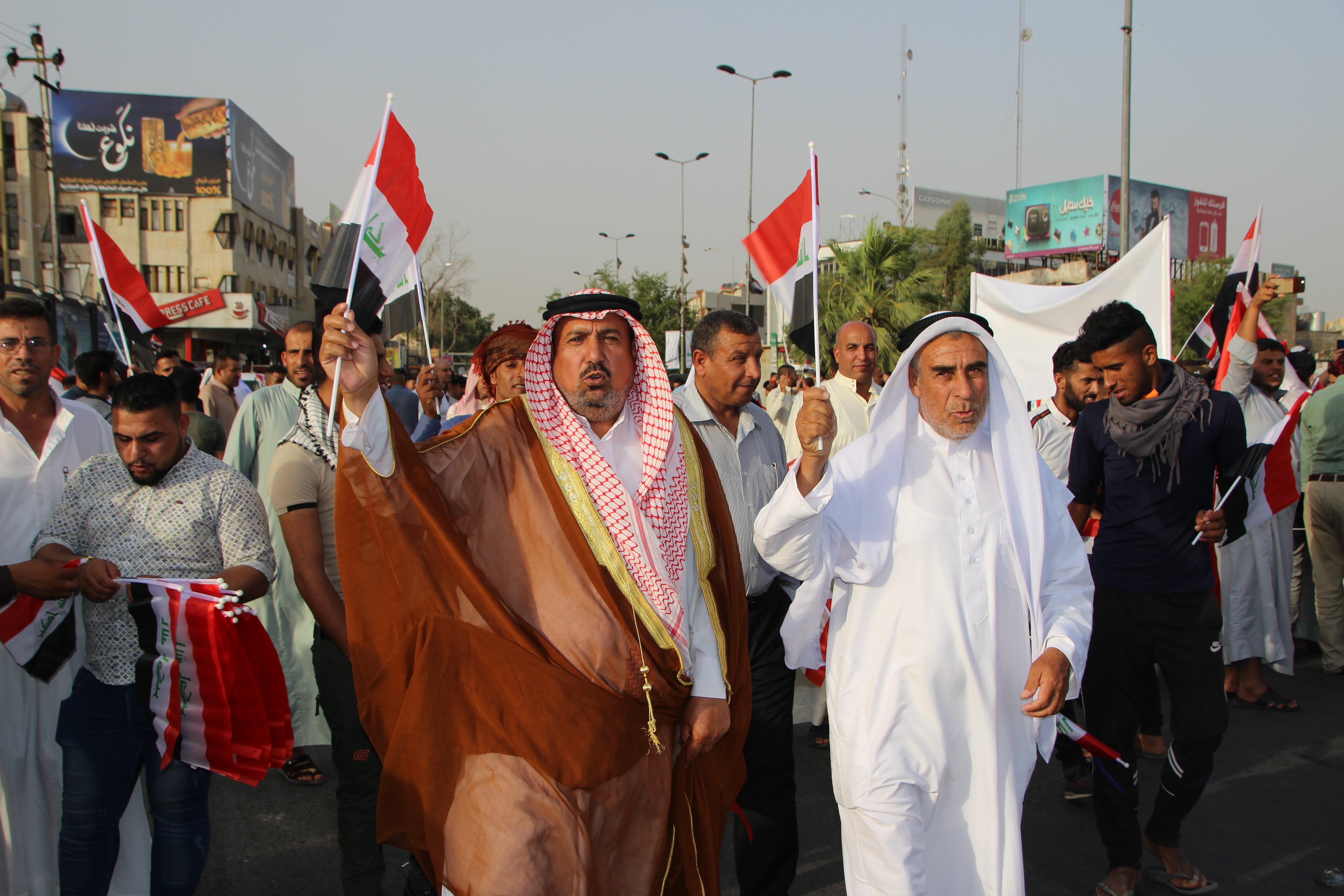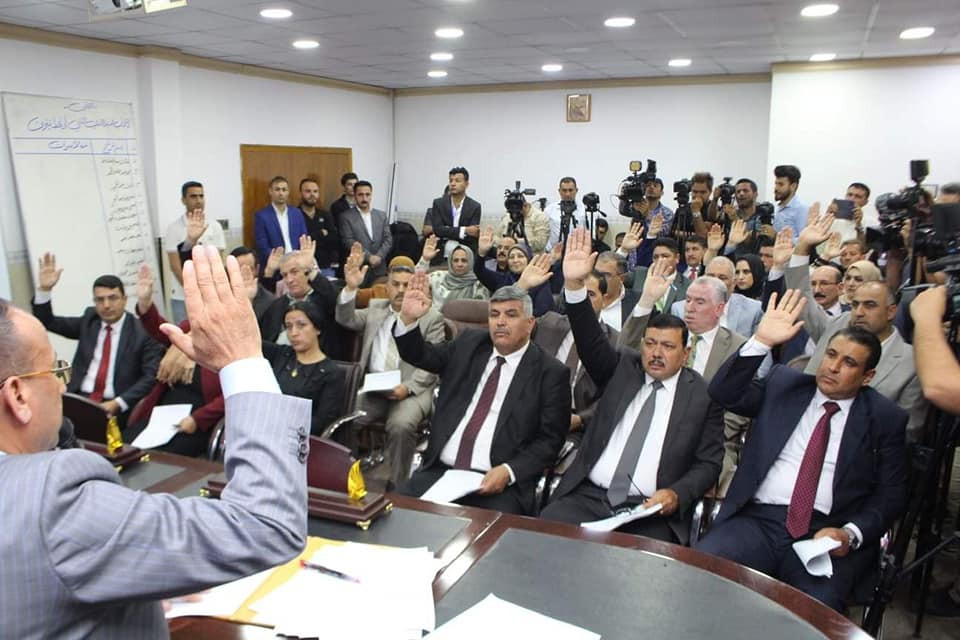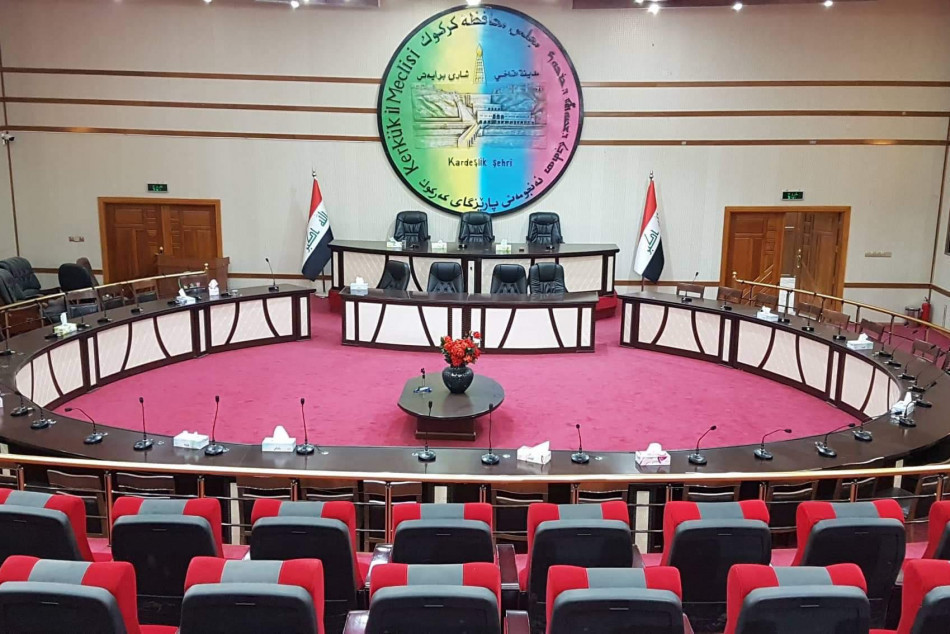The election of a candidate for the position of governor was only the prerogative of the provincial councils, but after the decision to dissolve these councils, that power passed to the Iraqi prime minister, who can assign a person to take over the tasks of the governor.
In late 2019, the Iraqi parliament, in response to the demands of protesters of October demonstrations in several Iraqi cities, made amendments to the Provincial Councils Law No. 12 of 2018, with the exception of the Iraqi Kurdistan Region IKR, and suspended those councils.
This comes at a time when the law of governorates unaffiliated to a region No. 21 of 2008, as well as Article 122 of the Iraqi Constitution, indicated that appointing the governor is a privilege of the Provincial Council.
The seventh item of article 7 of that law states that the election of the governor and his two deputies shall be by an absolute majority of the number of council members.
Latif Sheikh Mustafa, a constitutional law expert and former member of Iraqi parliament MP, told (KirkukNow), "from a legal point of view, this position must be filled by the provincial councils," but he clarified that "in order for that position not to remain vacant, the prime minister can, as a matter of fact, assign a person to take the position, whether he is the police chief or the deputy governor, and this is in accordance with the de facto situation and not according to the law, because this is not the prime minister’s authority.”
The State Consultation Council, in response to a question raised by Parliament after the termination of the work of the provincial councils in 2019, indicated that the governor can submit his resignation in the absence of the provincial councils to the Prime Minister who can also assign a replacement.

Kirkuk, 2019: a demonstration by a number of Arab tribes and clans against allegations that the Patriotic Union of Kurdistan PUK and the Kurdistan Democratic Party KDP, the two leading Kurdish parties, reached an agreement on restoring the governor’s position from the Arabs. KirkukNow
Shakhwan Abdullah, Deputy Speaker of the Iraqi Parliament affirmed "Electing the governor is one of the tasks of the provincial councils, but now it does not carry out its duties and the parliament is the one that performs the oversight role, so the parliament and the government can appoint a new governor."
According to the amendments in Law No. 12 of 2018 regarding the election of provincial councils, the governor, his deputies, and heads of administrative units continue their duties, while the task of monitoring the local administrations is entrusted to the representatives of each province in the House of Representatives HOR, the Iraqi parliament.
Mustafa, believes it is unconstitutional to grant the power to dissolve provincial councils and dismiss the governor to the parliament.
One of the paragraphs of Article 7 of the Iraqi Provincial Law not organized in a region No. 21 of 2008 states, “besides the provincial councils, the Iraqi parliament can also vote of no confidence for the governor based on the proposal of the Prime Minister.
In 2017, the Iraqi parliament dismissed the former governor of Kirkuk, Najmaddin Karim, a Kurd appointed by PUK, and appointed Rakan Saeed al-Jibouri, an Arab, in his place to take the position as an acting governor, by a decision of former Iraqi Prime Minister Haider al-Abadi.
We will agree with other components on a person to manage the affairs of the province until the provincial elections are held
The Kurds, and specifically the PUK, have been seeking since 2017 to regain the post of Kirkuk governor, which they consider their entitlement based on results of general elections.
Back in 2018, the Turkmens and Arabs each have got each three seats of the 12 parliamentary seats of Kirkuk and the rest six has gone to the PUK, one of the key Kurdish parties and stakeholder of the Iraqi Kurdistan Regional Government KRG.
In October 10, 2021 general elections, Turkmens have won two seats in the second constituency of Kirkuk and Arabs have won four seats compared to six seats for Kurdish political parties.
The PUK has won three seats, and two seats were gone to the Kurdistan Democratic Party KDP which boycotted 2018 elections. The New generation, Naway New (New Generation) which claims to be an opposition party, has earned a seat for the first time in Kirkuk.
The northern oil-rich city of Kirkuk, located 238 kilometers north of Baghdad, is an ethnically mixed province for 1.7 million Kurds, Sunni and Shiite Arabs, and Turkmen. It has long been at the center of disputed territories between Baghdad and Erbil.
"There is an agreement between the parties regarding the election of a governor for Kirkuk, because it is the right of the Kurds, and the Kurds must talk with other components to elect a new governor. This is very necessary because the situation in Kirkuk is getting worse every day," Abdullah said.
The deputy speaker of the Iraqi parliament stressed that "it is necessary to install an honest and loyal person as a governor, in order to serve all components without discrimination."
In the legislative elections that took place in October 2021, Rakan al-Jibouri had obtained enough votes to win a parliamentary seat, and now has one month to decide whether he will remain in the position of governor or go to Parliament.
Abdullah explained "if Rakan al-Jibouri goes to Parliament, we will agree with other components on a person to manage the affairs of the province until the provincial elections are held. At the present time, al-Jibouri is a caretaker, not a governor."
With the exception of Kirkuk, in which provincial elections were held in 2005 only, the last elections for Iraqi provincial councils took place in 2013, while it has not yet been determined when the next elections will be held.

Ninewa, May 13, 2019: Nineveh Provincial Council session to elect the governor. Credit of Ninewa Provincial Council media
Ghazwan Hamed, a former member of the Ninewa provincial council, says, "The election of the governor can be done by the council only. No party or person has the authority to elect the governor, but only the prime minister can appoint, not elect, a governor."
Hamed indicated that when the work of the provincial councils was terminated, a legal solution to this issue was not put in place, leading to a legal gap.
Article 28 of the law of governorates unorganized in a region states that “in the event that the governor is unable to perform his duties for health reasons for a period of more than three months, he shall be referred to retirement, and the Council shall elect a new governor using the same election mechanism mentioned in Article 7, item 7 of the law and the first deputy performs governor’s duties until the election of the new governor.
But this paragraph also does not provide a solution for Kirkuk, given that the position of the governor is currently managed by the first deputy governor.
"Dissolving the provincial councils was a grave mistake. If those councils were now carrying out their duties, it would have been possible to address this problem, and no governor would then be able to do what he wanted without oversight," Hamed concluded.





